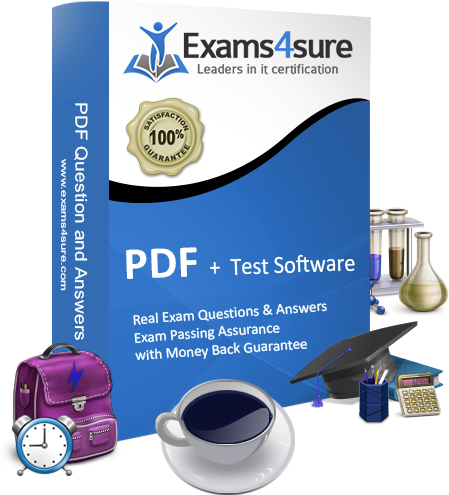
Obtain the latest and up-to-date PMI-ACP dumps featuring real exam question answers.
Receive 3 months of free updates at No Additional Cost.
Simulate the same PMI Agile exam environment prior to your certification exam.
Enjoy a 100% guarantee of passing the exam on your first attempt.
Receive a 15% discount on multiple licenses and a 25% discount on purchases of 10 or more licenses.
Ensure 100% secure purchases with SSL encryption.
Experience completely private purchases without sharing your personal information with anyone.
Discover our PMI-ACP dumps, comprising comprehensive question and answer sets tailored for your exam preparation. Our PMI Agile Certified Practitioner (PMI-ACP) practice questions feature authentic exam questions along with their corresponding answers, equipping you to excel on your first attempt. Explore Exams4sure, where you can access a free PMI Agile exam questions demo, allowing you to preview PMI-ACP sample questions before making your purchase.
Exams4sure stands out as an outstanding platform, offering an exceptional opportunity to save money with three months of complimentary updates following your PMI PMI-ACP exam questions dump purchase. Obtain our PMI Agile Certified Practitioner (PMI-ACP) braindumps and achieve success on your initial exam attempt.
The PMI-ACP® exam is structured around seven domains:
Domain V: Adaptive Planning focuses on creating plans at multiple levels (strategic, release, iteration, daily) using techniques like rolling wave planning and progressive elaboration. It aims to balance predictability of outcomes with the ability to exploit opportunities, ensuring plans are visible, transparent, and adaptable as the project evolves.
Rolling wave planning allows teams to plan in detail for the near term while keeping future plans at a higher level. This approach provides flexibility to adapt to changes and new information, enhancing the project's ability to respond to opportunities and uncertainties effectively.
Techniques include encouraging stakeholder participation, publishing planning results, using information radiators like Kanban boards or burn down charts, and facilitating open communication through meetings and collaborative tools to increase commitment and reduce uncertainty.
Progressive elaboration involves continuously refining and detailing project plans as more information becomes available. This iterative approach ensures that plans remain relevant and accurate, adapting to changes in requirements, priorities, and other project dynamics.
Maintaining such a list elevates accountability, encourages timely action, and allows the team to track ownership and resolution status of each threat or issue. It ensures that potential impediments are addressed promptly to maximize the value delivered by the project.
Retrospectives are regular meetings where the team reflects on their processes, identifies areas for improvement, and implements experiments to enhance effectiveness. This practice fosters a culture of continuous learning and adaptation, leading to ongoing enhancements in team performance and project outcomes.
Common agile estimation techniques include:
The exam comprises 100 scorable questions distributed among the domains based on their criticality and relevance:
Essential interpersonal skills include:
The RDS ensures that the exam content accurately reflects the real-world responsibilities and tasks of agile practitioners. It involves defining roles, validating them globally through surveys, and creating an examination blueprint that aligns with the critical and relevant aspects of the agile profession.
Disciplined Agile Scrum Master (DASM) Exam


TESTED 31 Mar 2025
Exams4sure.net offers reliable exam dumps, ensuring thorough preparation and confidence for success. With their comprehensive materials and 100% money-back guarantee, they prioritize customer satisfaction and exam readiness.
If you're short on time for the exam, rest assured that with our resources, passing with flying colors is within reach. However, in the rare instance that you don't pass, you're entitled to claim a refund without hesitation. We stand by our commitment to customer satisfaction with a 100% money-back guarantee if you're not completely satisfied with our products.